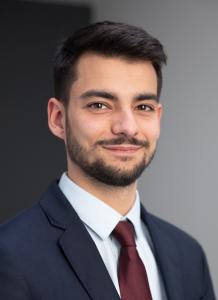The Middle East after the terrorist attacks of 7 October: Visit of Dr. Gerhard Wahlers to Israel and the Palestinian Territories
Above all, it was clear how deeply the attack of 7 October 2023 shook the region and changed it forever. This was made clear in many discussions with political leaders, military representatives, security experts and civil society partners. A visit to the former festival site in Re'im and to Kibbutz Kfar Azza - two of the hardest-hit sites - brought home the scale of the destruction and the human tragedy of the attack.
Strategic challenges and regional development
In numerous background discussions - including with members of the Knesset, representatives of the National Security Council and think tank experts from the Misgav Institute and INSS - it became clear that Israel is in the midst of a protracted and complex conflict. In addition to restoring the country's security, issues such as the possibilities of regional cooperation with countries in the region and strategic positioning vis-à-vis Iran dominate the current security debate. In all these aspects, the question of the release of the 59 hostages still held by Hamas - including nine German-Israeli citizens - plays a central role. In a meeting with the families of the hostages and in an exchange of views with Ambassador Steffen Seibert in Tel Aviv, Germany's various diplomatic efforts to de-escalate the situation in the region were also discussed.
Dialogue in difficult times
Despite the tense security situation, the exchange within society remains central. The visit to Tel Aviv University on the occasion of the 30th anniversary of the Konrad Adenauer Programme for Jewish-Arab Relations at the Moshe Dayan Centre highlighted the current challenges: Dialogue across ethnic and religious lines is difficult, but also indispensable - especially in times of increasing polarisation and violence.
Discussions with representatives of the Palestinian Authority (PA) in Ramallah, political analysts, Palestinian experts and the Foundation's partners highlighted the many dimensions of the crisis in the Palestinian territories. In addition to the war in the Gaza Strip, the focus was also on the pressing economic and security policy challenges in the West Bank, which are further exacerbating an already fragile situation.
Discussions highlighted in particular the challenges facing the PA government in implementing much-needed reforms, regaining the trust of its own people, and creating functioning political structures and institutions. The role of the PA in future scenarios for a post-war order in Gaza was also intensively discussed, as was the importance of regional actors such as Egypt and the Arab Gulf States, and the currently difficult prospect of a negotiated two-state solution in creating a political horizon.
Dr Wahlers' visit underlined the fact that the Konrad-Adenauer-Stiftung, through its long-standing partnerships in the region, is making an important contribution to stability, dialogue and democratic development through its work on the ground, even under difficult conditions - especially in view of the 60th anniversary of diplomatic relations between Israel and Germany, which is being celebrated this year.










